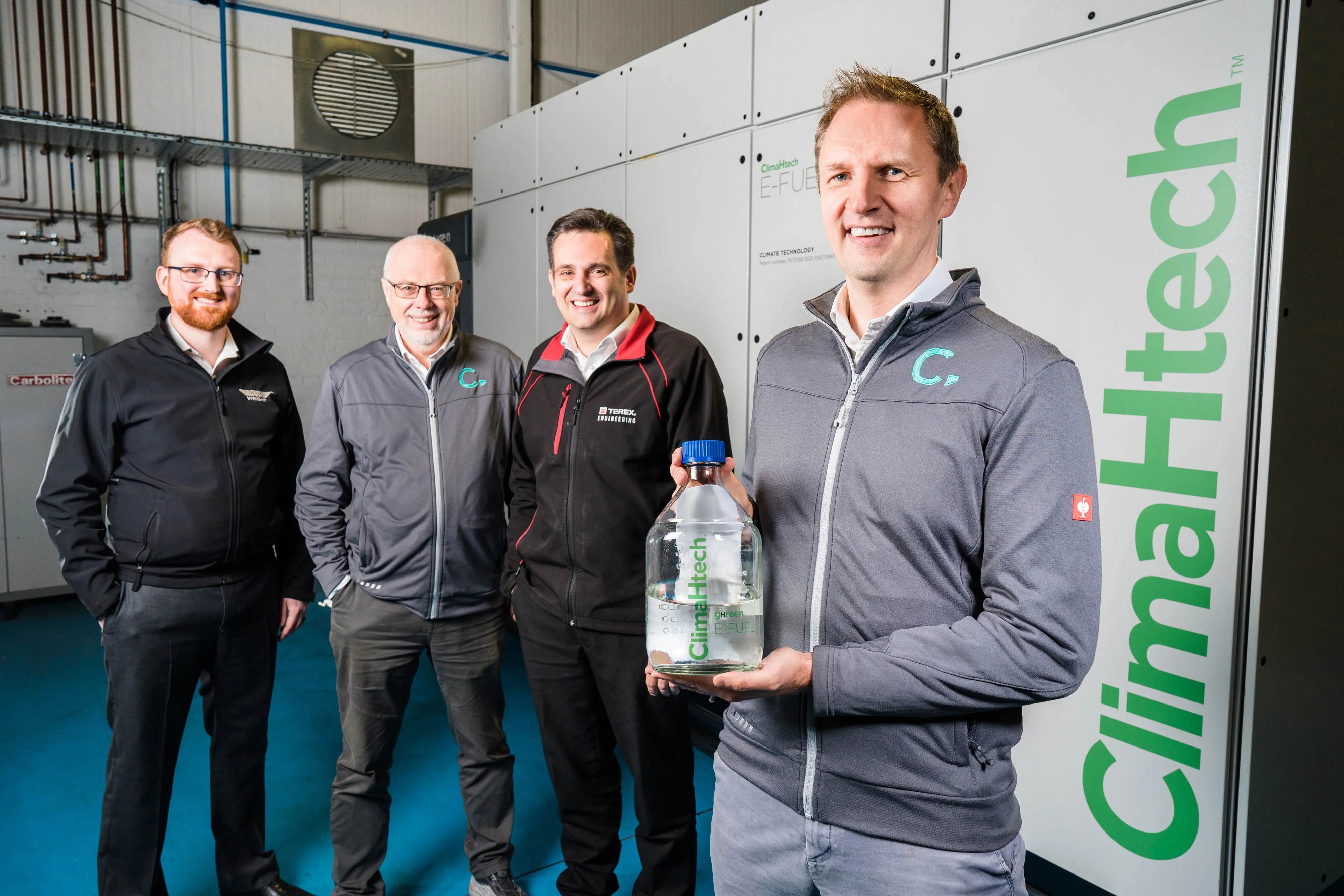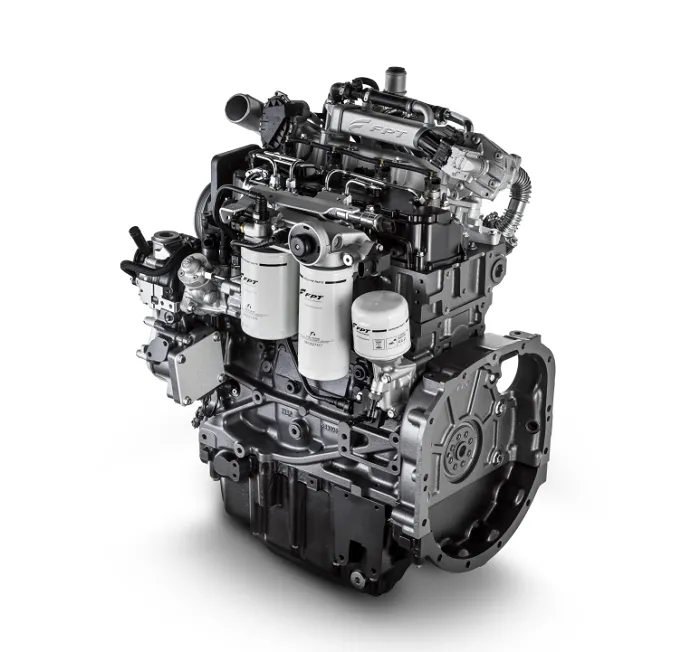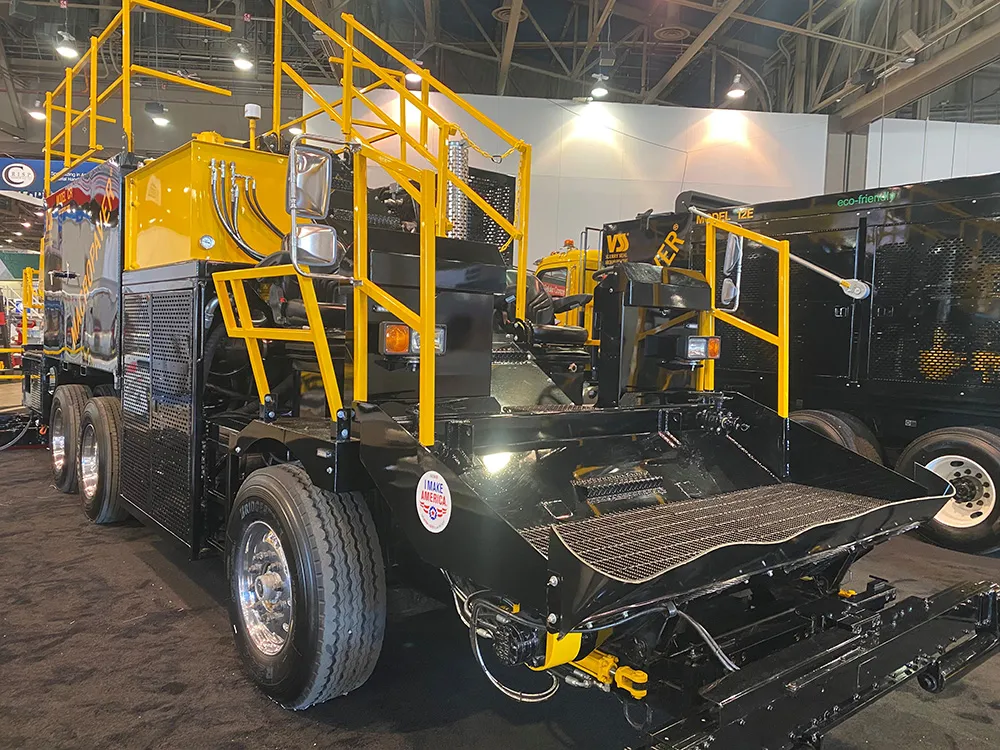
Terex along with CATAGEN and Wrightbus have been chosen by the UK government to demonstrate the practicality of delivering hydrogen to a work site.
The group will receive US$7.8 million under the phase 2 of the Red Diesel Replacement programme, run by Department for Energy Security & Net Zero. The overall aim of the programme is to decarbonise non-road mobile machinery.
The project will deliver a decarbonised end-to-end demonstration of a Powerscreen Premiertrak 450E crusher and Chieftain 1700XE screener, powered by green hydrogen and e-diesel at a working quarry site in Northern Ireland next year.
The Terex-CATAGEN-Wrightbus project is one of six projects chosen for phase 2 of the programme.
CATAGEN, based in Belfast, provides a range of emissions tests for aftertreatment systems to global auto and motorcycle companies. Andrew Woods, chief executive co-founder of CATAGEN said decarbonising off-road mobile machinery is difficult, these vehicles tend to be larger, built for extreme conditions, have long duty cycles and high-power demand. “There is no one-size-fits-all solution.”
The Terex-CATAGEN-Wrightbus project will showcase a Powerscreen Premiertrak 450E crusher and Chieftain 1700XE screener at a quarry, powered by a dual-fuel hydrogen e-diesel genset, produced and fuelled by the ClimaHtech system and the Wrightbus hydrogen refueller. “CATAGEN’s purpose is to clean and decarbonise the air and this project brings us one step closer to our goal to reduce global emissions,” said Woods.
“This project will demonstrate an end-to-end solution for the decarbonisation of Terex crushing and screening equipment through driveline efficiency improvements and displacement of fossil diesel with e-diesel and green hydrogen,” said David Trimble, group engineering director at Terex Materials Processing. “The main aim is to produce a robust set of equipment for the quarrying and recycling industries with net zero carbon emissions and a significant reduction in all engine emissions.”
The project will further develop the evolution of the Powerscreen Premiertrak 450E crusher and Chieftain 1700XE screener for improved energy efficiency through low-carbon power supply. It will also develop the pilot-scale production of CATAGEN’s e-diesel technology (ClimaHtech E-FUEL GEN) a drop-in fuel that requires no change to the current infrastructure as well as the integration of CATAGEN’s hybrid compression and dispensing technology (ClimaHtech COMPRESSOR).
For the project, Wrightbus will be developing the mobile hydrogen refueler, having developed what it claims is the world’s first hydrogen double-deck bus. “Wrightbus is well-placed to aid in knowledge transfer to adjacent sectors and lessons learned will be key to developing a sustainable decarbonisation roadmap for the entire transport industry,” said Andy Harris, advanced engineering manager at Wrightbus.
The objectives are to develop this complete solution to pre-production readiness level and demonstrate the full systems’ approach at two demonstration sites in 2024. The benefits of this concept lie in the integration of well-proven equipment with innovative technology that will be capable of delivering a fully decarbonised, robust solution for the industry.
Ther other five projects include Project Depower 2, run by Danfoss Scotland. It will focus on excavator hydraulic systems that currently waste around 70% of useful power delivered by the engine. The project aims to accelerate electrification of these machines through improving the energy efficiency of excavators, which will reduce battery size and charging energy required.
The project Red Garnet Red Diesel Generator alternative, run by AFC Energy, will demonstrate the supply chain and technology of AFC Energy’s H-Power S/S+ Series emissions-free hydrogen gensets through one month deployments of green hydrogen-fuelled gensets at two quarry locations. The gensets will displace red diesel generators across the two most commonly deployed power ratings: 30-50kVA and 250kVA. The H-Power S Series is an air-cooled fuel cell generator which will be operated with a BESS with a minimum usable capacity of 45kWh and the H-Power S+ Series is a liquid-cooled fuel cell generator to be operated with a BESS with a minimum usable capacity of 184kWh.
The project Comprehensive hydrogen supply-chain solutions for NRMM (H2-to-Site), by Ryze Hydrogen, will look at hydrogen refuelling infrastructure tailored to construction sites, which poses a barrier to hydrogen adoption as fuel. The project aims to overcome this barrier through demonstration of a hydrogen supply chain and development of associated equipment that is mobile, flexible, and provides hydrogen on-demand at construction sites.
Element1: Leading the construction industry towards zero emissions future, run by Bam Nuttall, will design and demonstrate a solution for the manufacture, supply, distribution, storage and use of hydrogen as an alternative to diesel on a construction site, powering construction plant and equipment. The project aims to accelerate displacement of diesel-fuelled technologies while enabling existing plant to continue in-use over its remaining lifecycle.
Cage Technologies, in its project called Hybrid gas engine 2 (HGE2), will deliver three working prototype gas engine platforms able to use hydrogen, LPG or other gas fuels which are installed in generators. In HGE2, the technology will be further developed and trialled on construction sites. The platform will be developed to accept rDME; a low-carbon, renewable fuel with similar properties to LPG in terms of storage and transportation. The project aims to address two barriers to adoption of alternative fuel engines in the off-highway sector; certification to meet emission standards to allow commercial supply at scale, and measures to ease safe supply of alternative fuels to the construction sector at the point of use.
More information about the project is available on the website of the Department for Energy Security & Net Zero.









